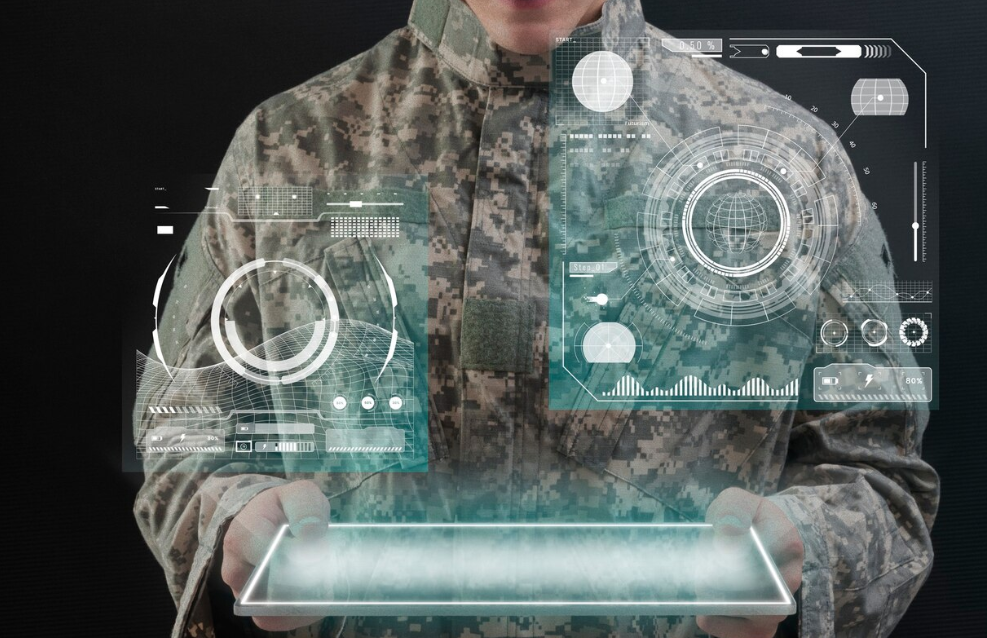The field of early childhood education (ECE) has seen remarkable advancements in recent years, with new technologies playing an increasingly important role in shaping how young children learn and develop. Among the most transformative of these technologies is Artificial Intelligence (AI). AI has the potential to revolutionize early education by providing personalized learning experiences, supporting teachers, and enhancing the developmental outcomes for children.
In this article, we explore how AI is currently being integrated into early childhood education and the opportunities and challenges it presents for the future of young learners.
What Is AI in Early Childhood Education?
Artificial Intelligence refers to the ability of machines and systems to perform tasks that typically require human intelligence, such as learning, problem-solving, language understanding, and decision-making. In the context of early childhood education, AI can be leveraged to create personalized learning experiences, provide real-time feedback, and support both teachers and parents in guiding children’s growth.
Key Areas Where AI Is Impacting Early Childhood Education:
- Personalized Learning
- Language and Literacy Development
- Classroom Management and Teacher Support
- Parental Engagement and Monitoring
- Data Analytics for Improving Educational Outcomes
1. Personalized Learning: Tailoring Education to Each Child
One of the most promising aspects of AI in early childhood education is its ability to personalize learning for each child. Every child learns at their own pace, and AI can help ensure that learning experiences are customized to meet individual needs, preferences, and learning styles.
- Adaptive learning platforms: AI-powered educational software like Khan Academy Kids and DreamBox use algorithms to adjust the difficulty level of tasks based on the child’s progress. These platforms provide children with interactive lessons that become more challenging as they master skills, ensuring they are continuously engaged and motivated.
- Customized feedback: AI can provide real-time feedback to children, guiding them through tasks and helping them understand mistakes. This kind of immediate response is especially valuable in early education, where children are learning foundational skills that build on one another.
Personalized learning powered by AI ensures that each child receives the support they need to succeed, whether they are struggling with a specific concept or excelling at a particular task.
2. AI and Language and Literacy Development
Early childhood is a critical period for language and literacy development. AI can play a pivotal role in promoting these essential skills by providing interactive, engaging, and effective learning tools.
- AI-powered speech recognition: Tools like Vroom and Speech Ace use AI to recognize and assess children’s speech, offering feedback on pronunciation, vocabulary, and fluency. These tools help children practice language skills in an engaging and low-pressure environment, making it easier for them to develop confidence in their speaking abilities.
- Interactive storybooks: AI is also being used to create personalized storybooks and interactive reading experiences. For instance, platforms like StoryBots and Reading Rockets use AI to adapt stories based on the child’s reading level, ensuring they are exposed to content that is appropriate for their development.
- Language translation: AI-powered apps are helping children who speak different languages to access educational content in their native language. This fosters inclusivity and ensures that all children, regardless of their linguistic background, have the opportunity to learn effectively.
By promoting language development in fun, engaging, and personalized ways, AI is helping young learners build strong literacy skills early on.
3. Classroom Management and Teacher Support
Teachers in early childhood education often face the challenge of managing a diverse group of children with varying needs. AI can help alleviate some of the pressure on educators by providing tools that streamline classroom management and support effective teaching.
- Behavior tracking and analysis: AI-powered tools can monitor children’s behavior and interactions, helping teachers identify patterns that might indicate social, emotional, or developmental challenges. For example, AI platforms like ClassDojo allow teachers to track behavior, reward positive actions, and communicate progress with parents.
- Teaching assistant tools: AI-powered assistants, such as Google Assistant or Amazon Alexa, can be used in classrooms to provide educational content, answer questions, and guide children through tasks. These virtual assistants can support teachers by handling administrative tasks, like managing schedules, keeping track of attendance, and even organizing lesson plans.
- Automatic assessments: AI can help teachers assess children’s progress by analyzing their work, identifying strengths, and flagging areas for improvement. AI-based tools like Seesaw provide detailed analytics, enabling teachers to track the learning journey of each child and make adjustments to the curriculum as needed.
With AI’s help, teachers can better focus on the individualized needs of their students while automating repetitive tasks that take up valuable time.
4. Parental Engagement and Monitoring
The role of parents in early childhood education is crucial, as they play an active role in their children’s learning and development outside of the classroom. AI can assist parents by providing them with real-time insights into their child’s progress and engaging them more actively in the educational process.
- Learning progress reports: AI platforms often provide detailed reports on a child’s development, allowing parents to track progress and understand where their child might need additional support. Tools like LumiKids offer parents data on their child’s skills, helping them engage in informed discussions with educators and make targeted efforts at home.
- Parent-child interaction tools: AI-powered apps and games can encourage learning at home. For example, apps like Khan Academy Kids provide parents with interactive tools to facilitate fun and educational activities that complement what children are learning in the classroom.
- Behavioral insights: AI can track and analyze a child’s mood and behavior, alerting parents to potential concerns such as stress, anxiety, or difficulty with specific tasks. This provides an opportunity for early intervention and more effective parenting strategies.
By providing parents with valuable insights into their children’s learning and development, AI helps strengthen the connection between home and school, ensuring that children receive the support they need both inside and outside the classroom.
5. Data Analytics for Improving Educational Outcomes
AI’s ability to analyze large amounts of data is one of its most powerful attributes. In early childhood education, data analytics can provide valuable insights into how children learn, what teaching strategies are most effective, and how educational outcomes can be improved.
- Learning analytics: By analyzing data from AI-powered educational platforms, teachers can identify patterns in student performance, tailor lessons to individual needs, and make data-driven decisions about the curriculum.
- Identifying learning gaps: AI can detect when children are struggling with specific concepts or skills, allowing teachers to intervene early and provide additional support. Early identification of learning gaps is crucial for ensuring that children don’t fall behind as they progress through their education.
- Predictive modeling: AI can help predict future learning outcomes based on data collected from children’s interactions with learning platforms. This helps educators anticipate challenges and make adjustments to teaching strategies to better support their students’ growth.
Through data analytics, AI can empower educators to make more informed decisions, ultimately improving the quality of early childhood education for all learners.
Challenges and Considerations
While AI has tremendous potential to improve early childhood education, there are several challenges that need to be addressed:
- Privacy and data security: Collecting and analyzing data about young children raises concerns about privacy and data protection. It is essential that AI tools used in education comply with strict data protection regulations and that children’s personal information is kept secure.
- Equity and access: Not all children have equal access to the technology necessary to benefit from AI-powered learning tools. Ensuring that all children, regardless of socioeconomic status, have access to these technologies is critical for fostering educational equity.
- Human element: AI can assist in personalizing learning and providing feedback, but it cannot replace the important role that teachers, caregivers, and human interaction play in a child’s development. It’s essential that AI be used as a complement to, rather than a replacement for, human teaching.
Conclusion
AI is already making a significant impact on early childhood education, enhancing learning experiences, supporting teachers, and fostering greater parental engagement. By providing personalized learning paths, aiding in language development, and improving classroom management, AI is paving the way for a more effective and inclusive educational environment for young children.
However, as with any technology, it’s important to address the challenges related to privacy, equity, and the balance between technology and human interaction. When implemented thoughtfully, AI has the potential to improve educational outcomes and ensure that all children have the opportunity to reach their full potential.
As AI continues to evolve, its role in early childhood education will only grow, making the classroom experience more dynamic, personalized, and effective for both educators and young learners.


